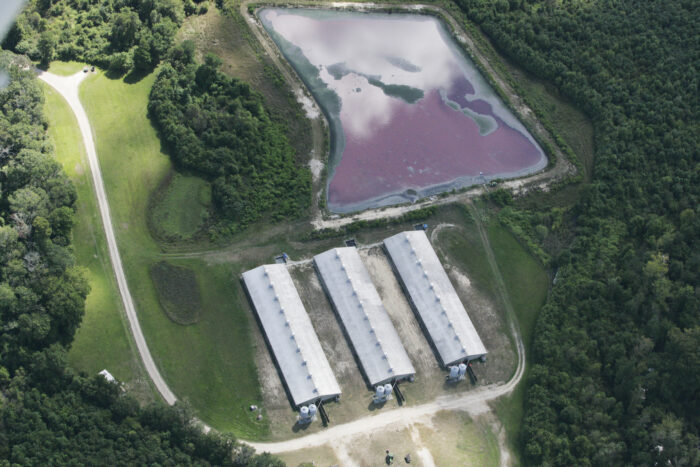EPA investigates discriminatory harm from NC hog operations
In response to a civil rights complaint we filed on behalf of the Duplin County Branch of the North Carolina State Conference of the NAACP and the North Carolina Poor People’s Campaign, the U.S. Environmental Protection Agency agreed to investigate the discriminatory impact of pollution and adverse health risks, including premature death, that industrial hog operations impose on Black and Latino communities in North Carolina.
The North Carolina groups’ complaint informed EPA that permits issued by the North Carolina Department of Environmental Quality in April 2021, allowing four Smithfield-owned hog operations to use cesspits full of hog waste and sprayfields to produce energy, failed to protect the surrounding communities from air and water pollution. A disproportionate share of the hundreds of families who live around these hog operations are Black and Latino.
Real solutions to our climate crisis must serve all communities, including the most vulnerable.
William Barber, III
“We are excited that the EPA decided to investigate this complaint,” said Robert Moore, president of the Duplin County Chapter of the North Carolina NAACP. “As a ‘watch dog’ for those most negatively impacted by the hog industry, we consider the investigation of this complaint as a step in the right direction. Nevertheless, we also understand that there is much more work to be done.”

The National Academy of Sciences recently published a study finding that emissions from industrial animal operations in Sampson and Duplin Counties, where these hog operations are located, are responsible for a combined total of 178 premature deaths every year.
Over the coming months, EPA will conduct its own investigation into the state agency’s permitting decision and the impact of its decision on communities of color.
“EPA’s decision to investigate the disproportionate impacts of these permits on North Carolina’s poor and communities of color is crucial in maintaining robust commitments to environmental justice in our state,” said William Barber, III with the NC Poor People’s Campaign. “Real solutions to our climate crisis must serve all communities, including the most vulnerable. We look forward to EPA’s findings.”
We’re protecting communities by tackling pollution from industrial animal operations.
North Carolina’s environmental agency is in the process of developing a general permit for industrial hog operations that want to install lagoon covers and produce biogas, which could allow harmful projects with minimal scrutiny by the public.
“We are pleased that EPA will investigate how DEQ’s failure to require common-sense measures to limit pollution is impacting families in Duplin and Sampson counties,” said SELC Attorney Blakely Hildebrand. “We hope that DEQ can quickly correct its course and protect communities near industrial hog operations as it develops a new general permit for hog operations that produce biogas.”
